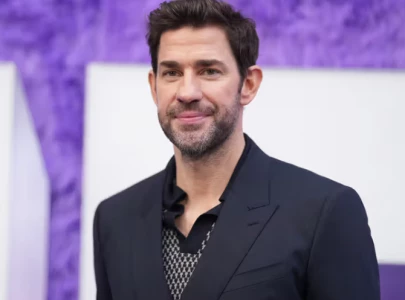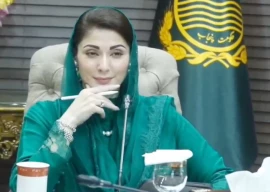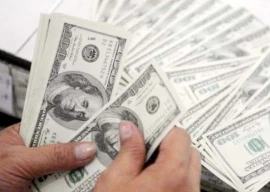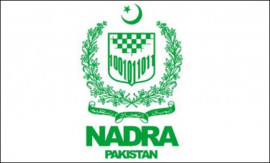
It had taken over a month to arrange a meeting with the Khan: all negotiations conducted, infuriatingly, by text message as he does not answer his phone unless the caller happens to be someone he wants to converse with. Not falling into that hallowed category, there was no option but to play his game, laboriously tapping out one message after another until both date and time were set. Guessing rightly that he would be a stickler for promptness, I headed down to the plains earlier, with a ‘getting lost’ allowance in my plans as phoning for directions obviously wasn’t an option.
As it turned out the Kastle was simple to find; perched as it is right on top of the only hillock for miles around, smugly overlooking the congested building site known as Bani Gala which, whether its ‘brass not class’ residents like it or not, is nothing more than a suburb of unplanned, over-populated, mostly illegal, Barakhu.
The single track, winding road leading to the crown of the hillock badly needs repair in places but, when you relish your privacy as the Khan so obviously does, this is par for the course. There was no mistaking the entrance to the Kastle: two white butterflies pirouetted amidst the blaze of shocking-pink bougainvillea tumbling over the walls on either side of the locked and barred gate, manned by a self-important youngster who phoned ahead to announce my arrival. Returning from his bunker a good five minutes later he pompously told me to go away and return at the appointed time of noon, adding that the Khan wasn’t home from Islamabad yet. Something told me that the Khan hadn’t gone anywhere, that he was doing whatever it is Khans do prior to press appointments but, admittedly, I was all of 30 minutes early so turned tail and went back down through scrubby trees and scorched grass in search of a cold drink to stave off the dust-laden heat.
On the stroke of 12, I was back, the gates swung silently open, the car glided along the tree-lined driveway towards the Kastle and my eyes widened with surprise. Nicely maintained vegetable plots, artfully-trained grape vines and a huge, obviously happy Kochi dog lazing in the shade of a fruit tree. Preconceived notions are something I avoid but, having been warned of insufferable arrogance by people who had previously made his acquaintance, this was most certainly not the Kastle Khan of my imagination, although the grey-bearded retainer, who instructed the cab where to park, at a distance of course, before ushering me through the outer portals of the traditional haveli-like construction, was a Jeeves of the highest order.
The obnoxious chemical orange wall-hanging dominated the large, airy, reception room where I was instructed to wait. Not on the comfortable looking, slightly grubby, creamish sofa draped along the wall immediately beneath the woven monstrosity, which, on closer inspection, had emerald green things embroidered on it, but on an inhospitable, perfectly arrayed, wooden-armed sofa instead. Like Queen Victoria, I was not amused and, when the second Jeeves left me to it, I made a bee line for the open French windows leading on to a shady veranda where a beautiful, weather-worn, wooden dinning table and chairs were temptingly arrayed. A second Kochi dog, lounging in the sunshine on steps leading down to a vast, tree dotted lawn, ensured that I didn’t go further. Knowing full well that the Kastle is far from being old, I have to admit to finding the strangely historical atmosphere infinitely soothing and would, perhaps, have dozed off where I stood if a sweat-drenched figure hadn’t materialised from behind an imported araucaria tree.
Wearing running shorts and an open necked T-shirt, the Khan paused to re-tie one of his white joggers and was just running his fingers through his hair when he spotted me, smiled a greeting, waved towards the table and suggested we sit. Presumably he hadn’t run all the way from Islamabad to meet me!
Jeeves reappeared on cue to serve green tea and plates of chocolate gateaux while the Khan launched in to what appeared to be a well-rehearsed speech on environmental issues, having decided, wrongly as it turned out, that this is what I wanted to hear. Once he was in full flow, it took only a brief five seconds to reach this temp. It was all but impossible to halt him long enough to get a question in. Let’s face it, the Khan is an experienced interviewee and was quite determined to get his selected point across.
“There is an essay about you in a recently published book called Beyond Crisis, Re-evaluating Pakistan,” I finally managed to interject. “The book is a compilation of essays and the one about you is headed ‘Itineraries of Conversion’. The author, Sadia Abbas, claims that you have a secret agenda against women’s emancipation. Any comment?”
The very surprised Khan couldn’t comment until he managed to stop laughing; the laughter totally dismantled his usual public mask, allowing a glimpse of the very private person underneath to escape and revealing, in the process, that despite reports to the contrary, he is human after all.
Swatting flies away from the vicinity of the gateaux while pontificating about politics, the Khan increasingly reminded me of someone…but who?
The answer popped in my head as he fed tidbits of cake to his lounging dog. Donachan! He sounds, acts, even walks exactly like Donachan. Now Donachan has never set foot in Pakistan and is highly unlikely to do so as Donachan spends his time supervising his own little kingdom in the north of Scotland. He strides around, dogs at his heels, dressed as every well-bred Highland gentleman is supposed to dress — in tweeds that have seen better days, an ancient briar pipe clenched between his teeth, cricket bats and tennis rackets behind the door where ancestral spirits also lurk and he talks to, with, at, anyone who is prepared to or forced to listen. Donachan’s castle in no way compares to the Khan’s: its boundary walls are constructed from railway sleepers of varying heights for military strategic purposes and he is perpetually stocked up for a siege. Donachan you see, was once, so he claims, an undercover operative in Vietnam and still owns a tattered array of hand-stitched silk suits to prove it. According to local wisdom, Donachan is completely and utterly loop-de-loop although, I hasten to add, our very own Khan is not or not visibly at least. Donachan is a faded blue-eyed blonde, the Khan most definitely not, so why the impression of cosmic twinship? Of course! The mannerisms, the way of walking, the way of being and...the voice…that public school accent a la Prince Charles whom Donachan, not the Khan, went to Gordonstoun College with. The distinctive accent of the British upper class which is so utterly impossible to shrug off even when speaking in Urdu or, in Donachan’s case, Vietnamese. One has to wonder if the Khan has grown to loathe his accent as much as he currently claims to loathe the implicit colonialism it so clearly implies and to wonder too, if this rather benign, likeable personage, actually has what it takes to rule the roost he so dreamingly aspires too.
Published in The Express Tribune, October 31st, 2010.

1731486962-0/liam-(10)1731486962-0-165x106.webp)















COMMENTS (75)
Comments are moderated and generally will be posted if they are on-topic and not abusive.
For more information, please see our Comments FAQ